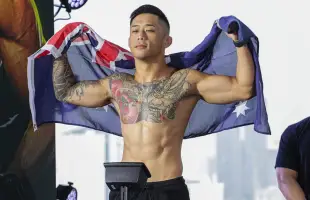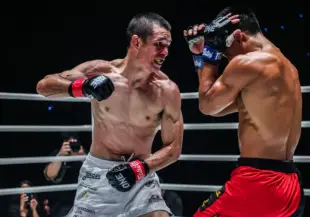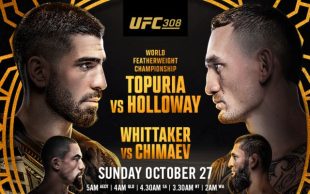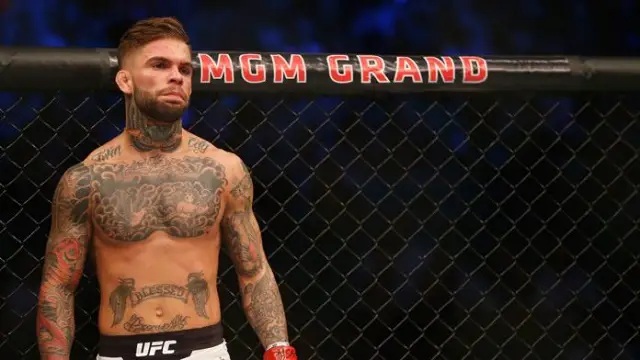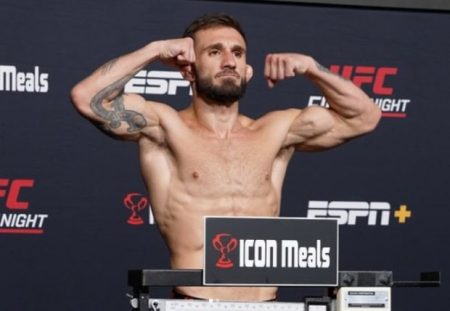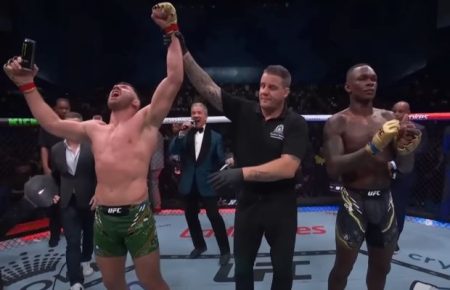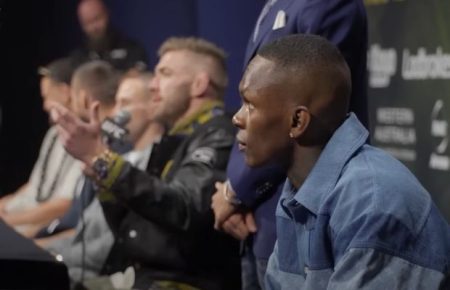Editor’s note: The views and opinions expressed below are those of the author and do not necessarily reflect the views of Fight News Australia, its affiliates and sponsors.
Since the sport of MMA was conceived, one of its defining characteristics has been the unpredictability that attends fights at the highest level. As frequently asserted by UFC president Dana White, “anything can happen” in the cage, and no matter what the odds, an underdog can have his or her day with the right game-plan, a well-timed strike or a perfectly executed submission.
If anything, 2016 has demonstrated the veracity of this maxim.
In a mere 12 months, 10 new champions have been crowned,* 8 of them achieving victory via finish and only one of them the favourite heading into the bout**. Amongst them were fighters few thought would ever wear UFC gold, such as Michael Bisping who earned a stunning first round KO over Luke Rockhold on a mere 11 days notice to become the middleweight champion; and Miesha Tate who synched up an incredible rear naked choke over Holly Holm to win the bantamweight strap in the final round of a fight she was losing. There were massive upsets outside the championship ranks as well, with Nate Diaz’s incredible submission victory over Conor McGregor at UFC 196 and Dan Henderson’s epic back-elbow KO of Hector Lombard at UFC 199 being just two notable examples.
As we enter 2017 however, a new dawn of instability hovers over the UFC promotion and the sport of MMA more broadly, that compounds the volatility inside the octagon.
Informing this instability is a swathe of significant disruptions that occurred in 2016 that permanently transformed the MMA landscape from what it was a mere 12 months ago and raise questions about its direction in 2017.
The most consequential was undoubtedly the change in ownership over the UFC, which was sold by the Fertitta brother Frank and Lorenzo to entertainment conglomerate WME-IMG for a record setting $4.2 billion in July. This led to an exodus of high profile figures such as Public Relations director Dave Sholler, long-time matchmaker Joe Silva and iconic commentator Mike Goldberg, in addition to dozens of lower-level employees. Whilst White has remained the face of the organisation for the time being, there have been noticeable changes in decision-making of the new entity. This includes a newfound penchant for interim belts, and an increasing determination to maximise earnings, necessitated by the $1.8 billion the owners WME IMG had to borrow to finance their purchase of the company.
Coming in a close second has been the emergence of fighter’s organisations the Professional Fighter Association (PFA) and the Mixed Martial Arts Athletes Association (MMAAA), who have used the UFC’s selling price to reinvigorate calls for fighters to receive a greater proportion of the promotion’s profits. Both organisations have faced significant and self-inflicted setbacks in unifying the fighters – most obviously by challenging the UFC’s hegemony as separate entities rather than as a coalition. However, their existence has ensured the issue of fighter pay remains a focal point in the media, and ensured fans are better educated about the precarious financial risks associated with fighting at the highest level.
The power vacuum left by the UFC’s sale, and increasingly emboldened criticism of the UFC business model connected to the union movement, has also transformed fighters’ perceptions of their place in the company. Now more than ever before, fighters – particularly champions – are taking a page out of boxing’s book by vocally pursuing matchups that are in their best financial interests, signalling a departure from the traditional deference fighters had for the promotion’s matchmaking.
In the past few months alone, a growing class of belt-holders has fervently attempted to avoid their respective divisions’ top contenders in favour of more lucrative contests. Among them are welterweight champion Tyrone Woodley, who spent the last month (unsuccessfully) pursuing unranked and semi-retired Nick Diaz, and then middleweight champion Michael Bisping, over a rematch with Stephen Thompson; newly minted 135-pound king Cody Garbrandt, who has favoured contests with featherweight champion Jose Aldo or lightweight champion Conor McGregor over consensus no.1 contender TJ Dillashaw; and 145-pound champion Jose Aldo, who entertained a “super fight” against Khabib Nurmagomedov for the interim lightweight title instead of a unification fight against interim 145-pound title holder Max Holloway.
Whilst champions can hardly be blamed for prioritising their financial interests – after all, for every George St Pierre who left the UFC “healthy and wealthy” there are ten Chris Leben’s who retired bankrupt and surrounded by medical bills – this development nevertheless has troubling implications for the longevity of the company.
Foremost among these is the inevitable pushback from disgruntled contenders, many of whom have begun expressing serious hostility towards the promotion and publicly questioning its claim that “in the UFC, the best fight the best”.
Amongst their ranks include some of the greatest talents in the UFC today, such as undefeated lightweight Khabib Nurmagomedov, BJJ mastermind and top ranked welterweight Damian Maia and former bantamweight champion TJ Dillashaw. Each have made persistent and brazen assessments of the UFC as promotion that’s sacrificing its legitimacy for a bigger bottom line, and as MMA receives greater mainstream media attention these narratives threaten to undermine the UFC’s status as the torch bearer for combat sports.
Previously, the UFC has been able to use the precariousness surrounding matchmaking to its advantage, with contenders vying to for a title shot becoming noticeably more outspoken in order to generate marketable narratives. However in an age where Bellator MMA is actually beginning to compete with the UFC in terms of rating, and more and more fighters expressing interest in testing the free market, the UFC’s monopoly on talent may genuinely be under threat.
One would hope that these developments are sufficient to persuade the UFC’s owners of the need to create more certainty for its athletes. Supporting the expansion of boxing’s Ali Act to MMA, which would create an independent sanctioning body to establish rankings and titles and ultimately bring an end to much of the volatility in matchmaking, is a potential place to start – albeit how this legislation should apply remains a contentious issue. Improving fighter treatment such that champions don’t need to grovel for a bigger payday should also be on the agenda.
Because right now, the future of MMA’s premier promotion is uncertain.
And no matter what the UFC says, uncertainty’s not always a good thing.
*not including interim champions (Jon Jones became the interim light heavy weight champion at UFC 197; Jose Aldo and Max Holloway became the interim featherweight champions at UFCs 200 and UFC 206 respectively).
**Conor McGregor was the slight favourite heading into his lightweight title bout with Eddie Alvarez at UFC 205.
